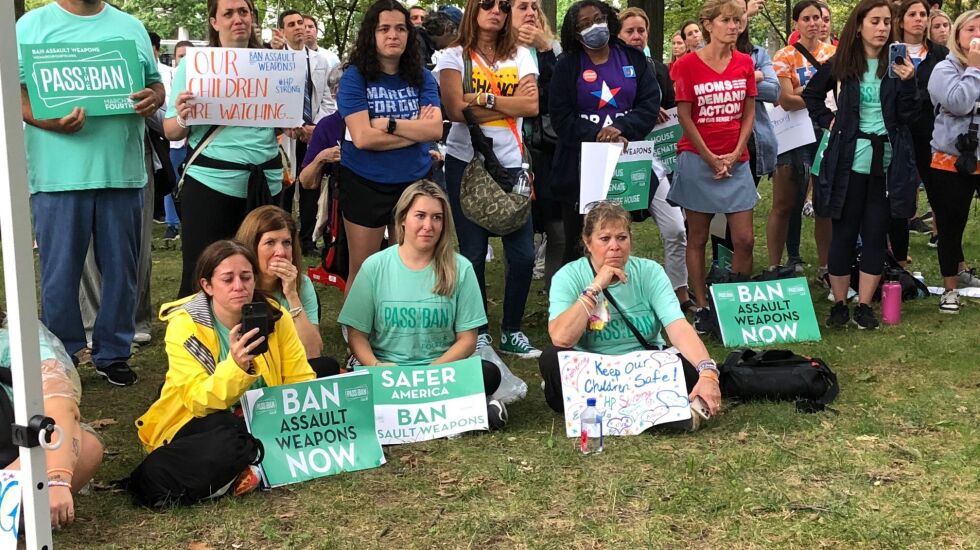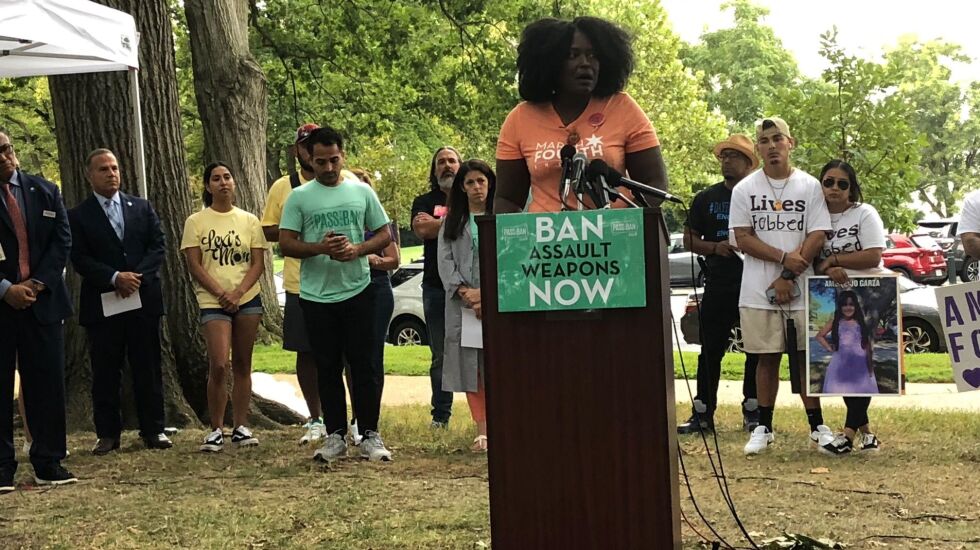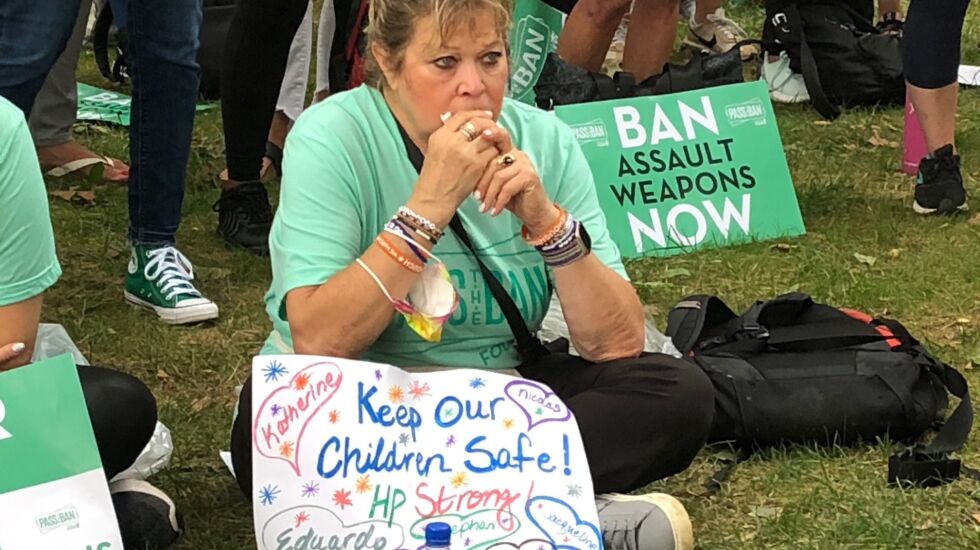
WASHINGTON — A Thursday rally on Capitol Hill brought together people forever scarred by 10 mass shootings, with this latest uphill battle for Congress to pass an assault weapons ban organized by a group founded in the wake of the Highland Park July 4 parade massacre.
“I’m glad that I’m amongst people who know what I am going through,” said Zeneta Everhart, whose 21-year-old son, Zaire Goodman, was seriously wounded May 14 in the racially motivated slaughter at a Buffalo, New York, grocery store where a shooter using an AR-15 killed 10 people.
“My community is in pain. My community is hurting. I am hurting. My son is hurting. He will be hurting for the rest of his life,” Everhart said.
Lexi Rubio was 10 years old when she was among 21 shot to death on May 14 at the Robb Elementary School in Uvalde, Texas, by a gunman using an AR-style weapon. “This summer brought unimaginable pain for my family that we will now carry with us through every season of life,” said her mother, Kimberly Rubio. “The death of my youngest daughter was horrific, inconceivable and yet preventable.”
Emily Lieberman, a pediatrician, is a Highland Park resident who was at the parade with 13 family members when a shooter using an AR-15-style Smith & Wesson semiautomatic rifle killed seven people and wounded at least 48 others in the space of a minute.
“Mass shootings are not acceptable. Mass shootings should not be commonplace in this country. Mass shootings can be prevented. You don’t have to be a doctor to understand that,” Lieberman said, with firearms “the number one cause of death of children in this country.”
The small rally — and related visits to senators and, at the White House, a meeting with Susan Rice, the director of the Domestic Policy Council — was the second Capitol Hill push organized by a group called “March Fourth,” formed days after the Highland Park attack. The first rally was July 13.
While Congress passed an assault weapons ban stretching from 1994 through 2004, all the mass shootings since then with these military-style firearms have not produced another ban.
Besides Highland Park, Uvalde and Buffalo, speakers were linked to other tragic mass killings, including those known by the shorthand of the town where the attacks occurred: Columbine; Parkland; Orlando; Las Vegas; and Newtown.
The House, with Democratic votes, passed an assault weapons ban in July. The measure is stalled in the 50-50 divided Senate, with at least 10 GOP votes — that so far do not exist — crucial to passage. President Joe Biden has said he is eager to sign an assault weapons ban if one is sent to his desk.
The window to do this may be closing, if the Republicans win control of either the House or Senate in the November midterm elections.
At the rally, Sen. Chris Murphy, D-Conn., said his “life changed” after the shootings at Sandy Hook Elementary School, where a shooter on one day in 2012 killed 27 people in Newtown. Murphy likened the struggle for Congress to pass an assault weapons ban to the “great social movements in the history of this country.”
Before the rally, Sen. Tammy Duckworth, D-Ill., met with Lieberman and three other doctors — two who were at the parade and another who treated people who were wounded at the Highland Park Hospital.
Duckworth, in an interview with the Chicago Sun-Times, said it was unlikely to get anything done in the Senate before the midterms, “but maybe after the election, in the lame duck period, we’ll be able to do something.”
For now, Duckworth said the advocates should “just keep doing what they are doing and continue to expand the network of people who are passionate about this issue.” She said she suggested to the doctors she met with that they reach out to “doctors who work in combat surgical hospitals” to underscore the public health threat that is taking place when weapons of war end up — legally — in the hands of civilians.
Highland Park resident Karen Abrams was at the parade and saw the carnage on the Central Avenue parade route, a witness, she said, to the “unspeakable damage to what that assault weapon did to a human body.”
Abrams said she traveled to D.C. for the rally because, “I was so deeply affected by what I saw and what I heard that I needed to do something to turn that horrific day into something positive.”


WATCH: Sun-Times “At the Table” show checking in on Highland Park two months after the massacre.







